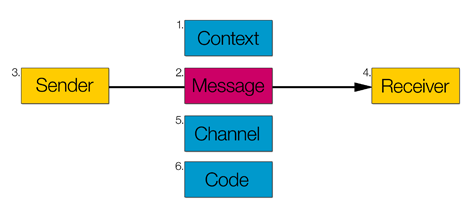A Little Goes A Long Way
Don't overtax your reader. By its very nature, your language will not have much of literary, poetic, or philosophical content. You want to give the reader a flavor without actually teaching them a new language.
Pick two to five words that have meanings that don't have good English approximates that really capture the essence of what you want to convey with your language and come up with specific, phonetically translated words to use in your text for those. Devote a lengthy scene or even a subplot to the process of discovering the meaning of one or two of those words, and a decent amount of coverage to the meaning of each other new word that is introduced.
A good example of how this is done in literary form would be Heinlein's Stranger in a Strange Land in which just a handful of words such as "Grok" are introduced but those words are used repeatedly and their deeper true meaning and fundamental foreign-ness as concepts is really explored.
A good example of how not to do this would be Frank Herbert's novel Dune which introduces so much foreign vocabulary so soon that it overwhelmed a lot of readers who weren't really determined. Ultimately, even that book had a fairly modest vocabulary set, but the book would have been much more accessible if the new vocabulary had been introduced at a more leisurely pace.
Not All Words Are Created Equal
Also, for these purposes, not all words are created equal. Introducing a new common noun that describes some kind of thing that doesn't exist in our world (e.g. the name of a snail that you suck into your nose to clear out your mucus) doesn't impose that much of a burden on a reader, and a proper name that isn't too hard to pronounce or remember imposes even less of a burden.
But, it is much more demanding on a reader to introduce words that convey more intangible concepts (e.g. a word that means hunger and pain and loneliness and fear or any of the above as context demands). So is a word that breaks the boundaries of our existing word categories (e.g. maybe instead of a verb for a particular kind of action like throwing something and an independent noun to describe what is thrown, there is a completely different word for every combination of an action like throwing and the thing that is thrown, a bit like irregular collective nouns in English such as a "murder of crows").
Show Don't Tell
Also, show don't tell.
Use Multiple Perspectives
Have a character try to communicate an idea that the more primitive language can't handle (like the future tense) express frustration over their repeated inability to get the idea across. But, perhaps using an eye of god narrator, portray in English an elaborate and cogent and fun conversation of some complexity within this simple language's boundaries between native speakers, to illustrate that it is not as simple minded as one might think.
Use Multiple Perspectives On The Same Conversation
Another interesting possibility comes to mind based upon an episode of This American Life on NPR about deaf people's cognitive experienced before and after learning sign language. Before learning sign language, they had a tough time remembering things and mostly expressed this when they did by re-enacting events that happened mime style. Only after they learned sign language did a more conventional memory emerge.
In your case I could imagine an outsider telling a story to someone with this primitive language that we hear from the teller's perspective with all its nuances, and then repeat the scene in a dream sequence of this native listener in a sequence that only repeats the greatly slimmed down version of the story that the listener was actually able to comprehend because the listener hadn't acquired all of the concepts that were communicated to the listener.
An Alien Language May Differ Not Just In How Ideas Are Communicated, But In What It Is That People Talk About
Another example of a real life proto-language would be dolphin communication which we are now starting to decipher. It turns out that dolphin communication involves a much higher proportion of proper nouns than human communication. It isn't that there aren't other words in dolphin language or that there aren't varied connotations of this basic core of what is said as in the "I am Groot" example in another answer. But, the core conversational content might be much smaller and might focus on two or three major subject areas like naming everyone and touching base with them in some way, identifying flora and fauna seen since the last discussion, and describing how to get from point A to point B, with not much discussion of other topics.
In the same vein, early written languages started out as a shorthand for keeping accounting records and wasn't intended as a complete reproduction over every idea or emotion that someone could have inside of you. You probably couldn't have written an emotional soliloquy about a teenagers feeling about their day in Linear A script or early Chinese characters any more than you could with the vocabulary in a set of baseball box scores. Maybe that is a kind of feeling expressed by these beings not with language but by touching and cuddling and stroking and crying and shrieking and eye rolling.
Pronunciation Through Font Effects
One good way to convey a novel kind of pronunciation is to convey it in writing with font effects. Perhaps some words are spoken with a throat voice and others are spoken with a nasal voice.
If the throat voice is conveyed with Courier type, and the first couple of times that throat voice is used that pronunciation method is identified, you visually convey the idea that non-English pronunciation is being used without actually having to transcribe the actually sounds made using the International Phonetic Alphabet (which may not even include sounds that aliens can make but humans cannot like sounds outside of our range of hearing or colors that we can't see with eyes built like ours).
Your ability, or a reader's ability to actually pronounce the words in the way that they would sound with this phonetic speech effect doesn't matter. The idea came come across even when the reader can't actually reproduce it.
Primitive Doesn't Mean Simple
Maybe you even add a feature normally considered "sophisticated" that is not present in English. Just because a language is overall simpler than English doesn't mean that it needs to be simpler in every single respect.
Navajo Source Of Information Tenses
For example, you could give this language the grammatical modes in Navajo that distinguish, for instance, between information obtained first hand and information that you know only through a hearsay account from someone else.
Topic Matter Noun Modes
Many African, Dravidian and Australian languages have different grammatical structures based upon the type of thing that you are discussing. There is one tense for talking about trees, another for talking about animals, and a third for talking about rocks.
Word Order
Another easy way to make a foreign language seem very different from English with minimal substantive difference or much of a learning curve is to follow the example of Yoda in Star Wars - use plain vanilla English but deviate from the SVO word order of English. There are even some studies that suggest that SOV is actually more "natural" if one is creating a language from scratch.
Complex Root Words Are Actually More Primitive
I would also deviate from other commenters regarding word complexity. Complex inflections and compound words may indeed reflect complexity and generalization and abstractification of a language. But, complex root words and many irregular forms can actually signal a more primitive languages.
Regularity and short efficient words are natural products of societies where people use lots of words on a regular basis with lots of variety in a society that is more seeped in culture in its essence. A less developed language would be less systematic, more idiosyncratic, and more clunky except for the most basic and universal concepts (mama, danger) the need to be expressed by even young children quickly.
A lot of complicated roots suggests that no one has analytically categorized words by type yet.
Don't Overdo It Grammatically
Whatever you do, however, you need to not stray too far from the concept that a little goes a long way.
Non-vocabulary language concepts are more of a burden on a reader than vocabulary based ones.
Two to five actual foreign words and one or two foreign grammatical concepts are more than enough. Translate everything else, adjusting point of view to do so if necessary.


